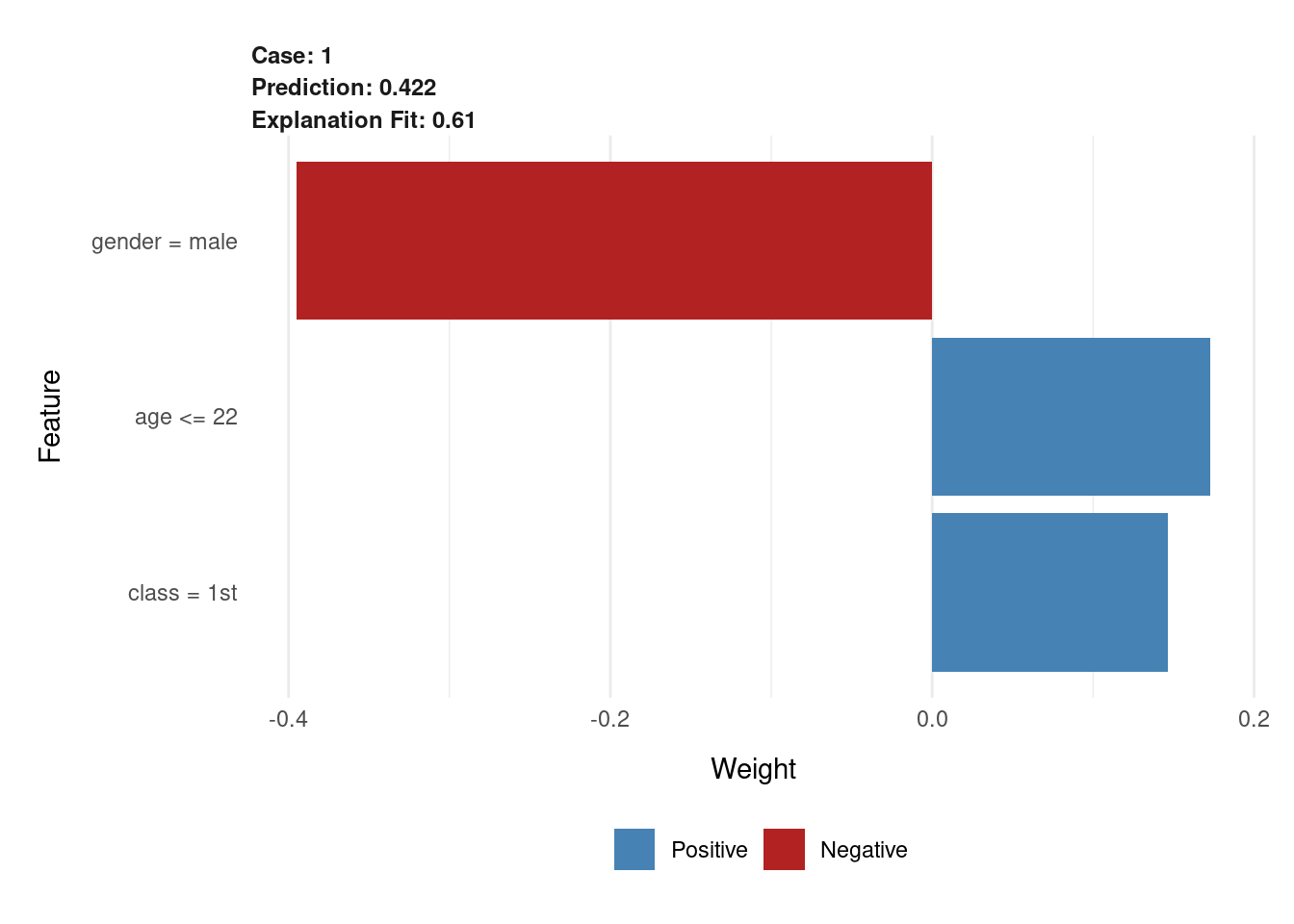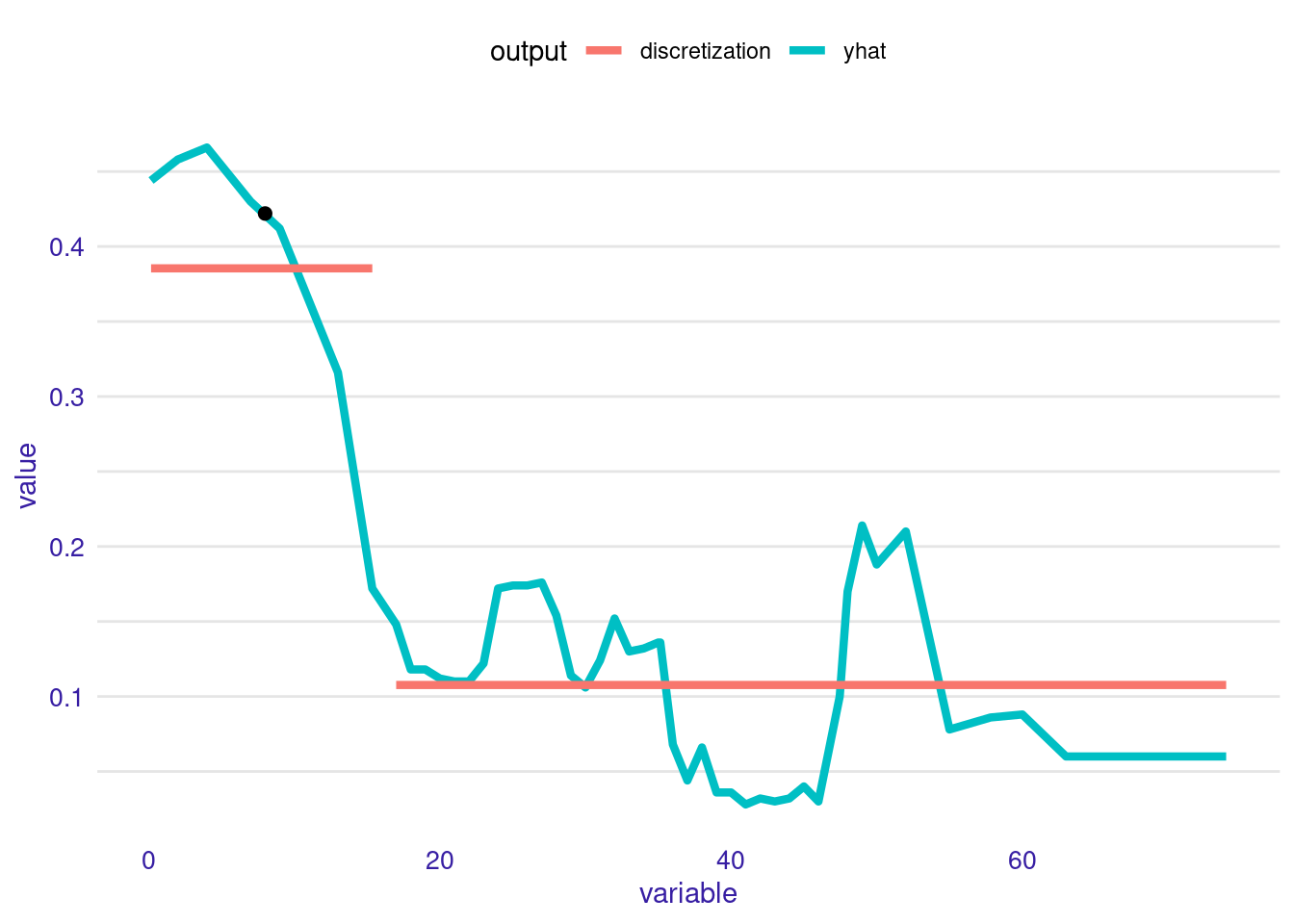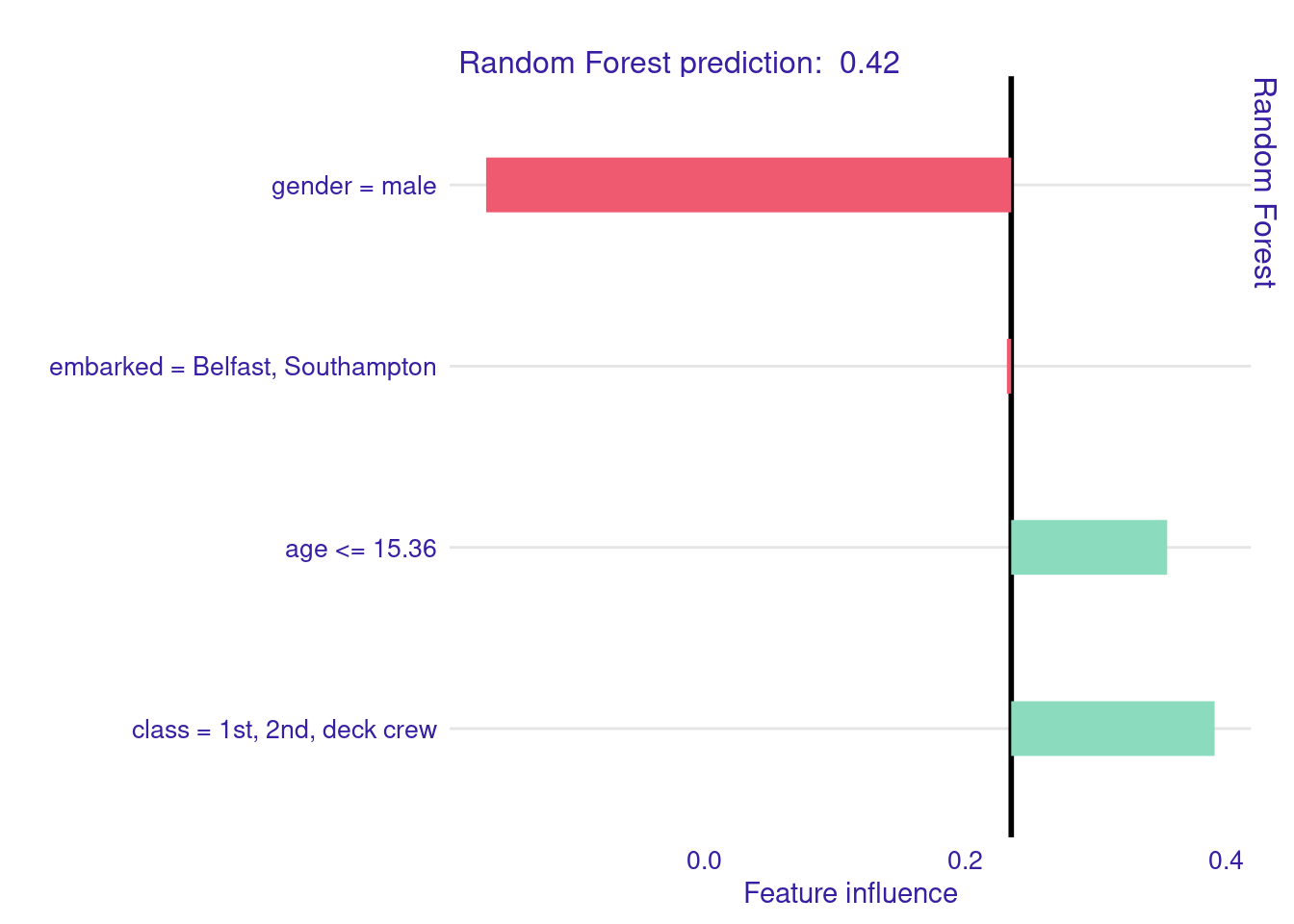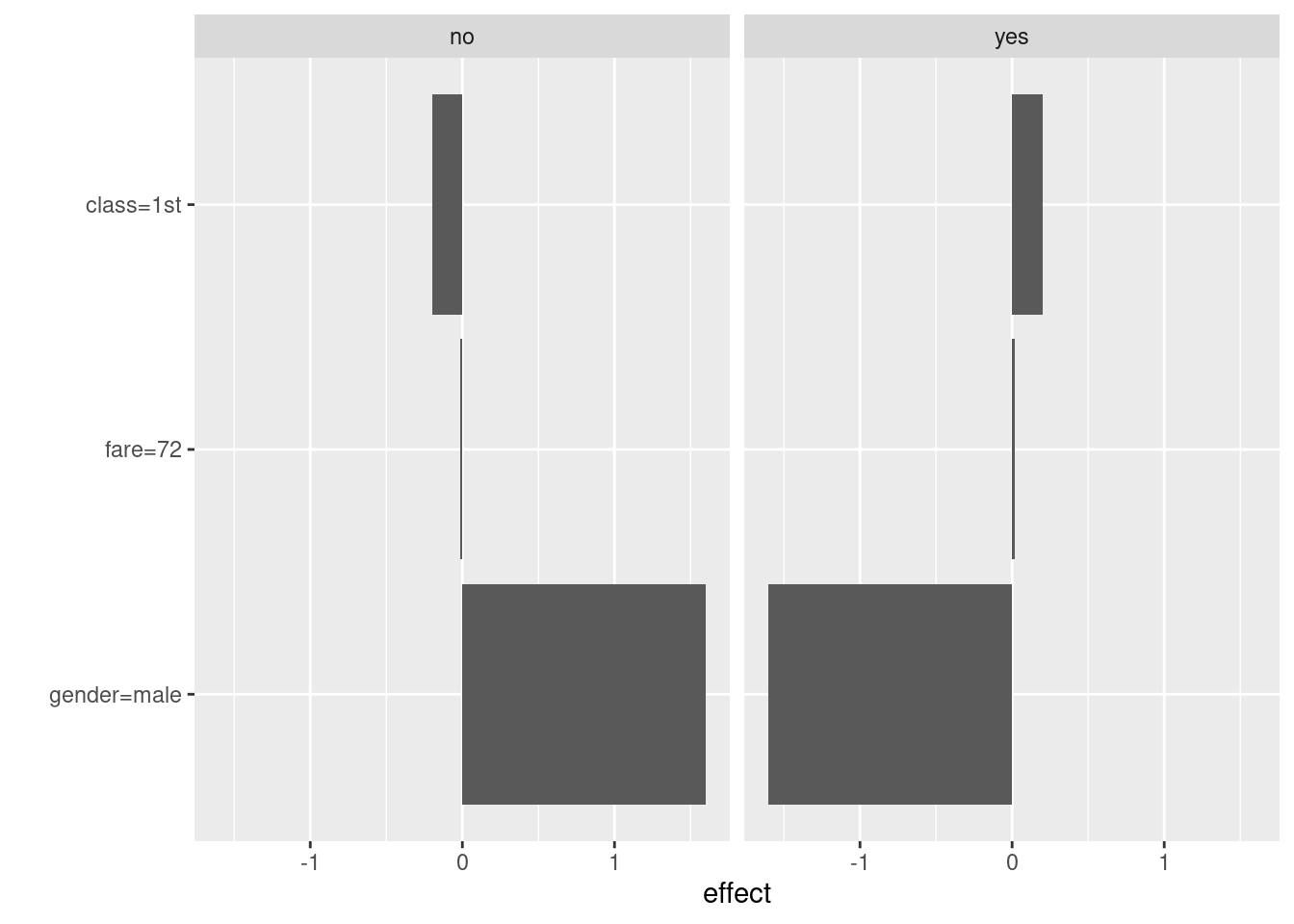9.5 Code Examples in R
Package options
limeis port of Python library, discretizes variables based on quartiles
localModeluses ceteris-paribus profiles,imlworks directly on continuous variables. One of package authors wrote popular interpretable ML book
Notes:
DALExtrapackage needed forpredict_surrogate()interface to multiple packages.
- Default method of
predict_surrogate()islocalModel.
- Examples below use K-LASSO for glass-box model
# core libraries
library(randomForest)
library(DALEX)
library(DALEXtra)
# load data nd models
titanic_imputed <- archivist::aread("pbiecek/models/27e5c")
titanic_rf <- archivist:: aread("pbiecek/models/4e0fc")
johnny_d <- archivist:: aread("pbiecek/models/e3596")
# explainer
titanic_rf_exp <- DALEX::explain(model = titanic_rf,
data = titanic_imputed[, -9],
y = titanic_imputed$survived == "yes",
label = "Random Forest")## Preparation of a new explainer is initiated
## -> model label : Random Forest
## -> data : 2207 rows 8 cols
## -> target variable : 2207 values
## -> predict function : yhat.randomForest will be used ( default )
## -> predicted values : No value for predict function target column. ( default )
## -> model_info : package randomForest , ver. 4.7.1.1 , task classification ( default )
## -> model_info : Model info detected classification task but 'y' is a logical . Converted to numeric. ( NOTE )
## -> predicted values : numerical, min = 0 , mean = 0.2353095 , max = 1
## -> residual function : difference between y and yhat ( default )
## -> residuals : numerical, min = -0.892 , mean = 0.0868473 , max = 1
## A new explainer has been created!Package: lime
Fit model:
library(lime)
set.seed(1)
# lime model
model_type.dalex_explainer <- DALEXtra::model_type.dalex_explainer
predict_model.dalex_explainer <- DALEXtra::predict_model.dalex_explainer
lime_johnny <- predict_surrogate(explainer = titanic_rf_exp,
new_observation = johnny_d,
n_features = 3,
n_permutations = 1000,
type = "lime")| model_type | case | model_r2 | model_intercept | model_prediction | feature | feature_value | feature_weight | feature_desc | data | prediction |
|---|---|---|---|---|---|---|---|---|---|---|
| regression | 1 | 0.613 | 0.557 | 0.481 | gender | 2 | -0.395 | gender = male | 2, 8, 1, 4, 72, 0, 0 | 0.422 |
| regression | 1 | 0.613 | 0.557 | 0.481 | age | 8 | 0.173 | age <= 22 | 2, 8, 1, 4, 72, 0, 0 | 0.422 |
| regression | 1 | 0.613 | 0.557 | 0.481 | class | 1 | 0.146 | class = 1st | 2, 8, 1, 4, 72, 0, 0 | 0.422 |
Interpretable equation:
\[
\hat p_{lime} = 0.557 - 0.395 \cdot 1_{male} + 0.173 \cdot 1_{age <= 22} + 0.146 \cdot 1_{class = 1st}=0.481,
\]
Plot lime model:

Package: localModel
library(localModel)
# localModel build
locMod_johnny <- predict_surrogate(explainer = titanic_rf_exp,
new_observation = johnny_d,
size = 1000,
seed = 1,
type = "localModel")| estimated | variable | original_variable |
|---|---|---|
| 0.235 | (Model mean) | |
| 0.619 | (Intercept) | |
| -0.402 | gender = male | gender |
| 0.120 | age <= 15.36 | age |
| 0.156 | class = 1st, 2nd, deck crew | class |
| -0.003 | embarked = Belfast, Southampton | embarked |
Plot to explain how continuous age variable was dichotomized:

Glass-box explanation plot for Johnny D:

Package: iml
library(iml)
# model using iml pacakge
iml_johnny <- predict_surrogate(explainer = titanic_rf_exp,
new_observation = johnny_d,
k = 3,
type = "iml",
seed=1)| beta | x.recoded | effect | x.original | feature | .class |
|---|---|---|---|---|---|
| 0.199 | 1 | 0.199 | 1st | class=1st | yes |
| -1.601 | 1 | -1.601 | male | gender=male | yes |
| 0.000 | 72 | 0.015 | 72 | fare | yes |
Notes:
- continuous variables are not transformed
- categorical variables dichotomized with value 1 for observed category; otherwise 0
Glass-box explanation plot for Johnny D:

The age, gender and class are correlated, and may partially explain why explanations are somewhat different across various LIME implementations.